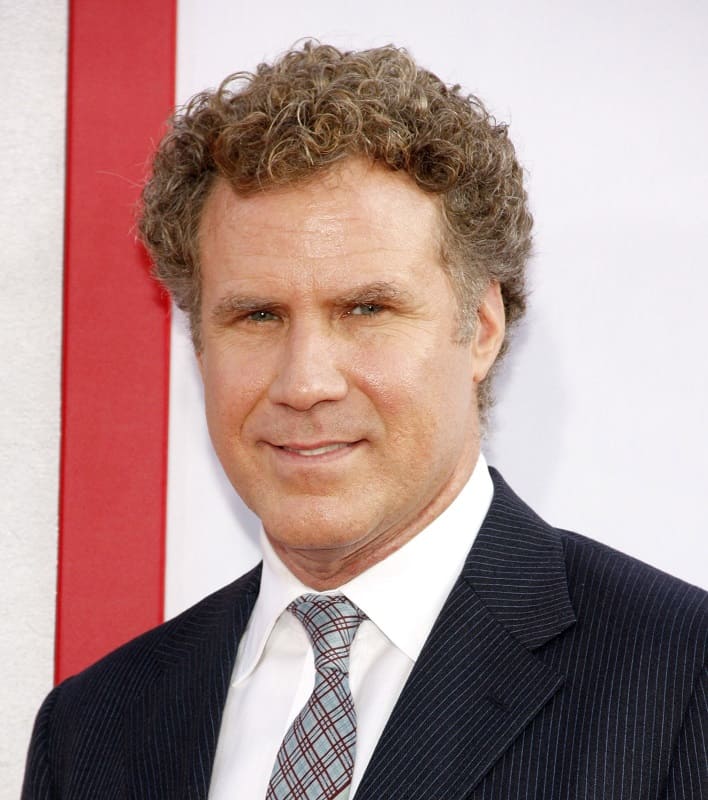Silver Foxes of the Silver Screen: Decoding the White-Haired Hollywood Heartthrob
Okay, let's be real, there's something undeniably captivating about a seasoned actor with a head of striking white hair. Is it the air of wisdom? The hint of mischief? Or maybe it's just the undeniable proof that some things, like fine wine and aged cheese, only get better with time. Whatever it is, the silver fox of the silver screen holds a special place in our hearts (and on our Pinterest boards).
From the classic Hollywood charm of Cary Grant to the steely gaze of a modern-day action star rocking the salt-and-pepper look, these performers command attention. But the white-haired actor is more than just a pretty face (though, let's be honest, the pretty face helps). They represent a certain gravitas, a depth of experience that translates into compelling performances. Think about it: would Gandalf have been quite as convincing without Ian McKellen's majestic white mane? We think not.
The emergence of the white-haired actor as a leading man, or a scene-stealing supporting character, speaks volumes about changing perceptions of aging in Hollywood. For decades, youth was king (and queen). Wrinkles were airbrushed, hair dye was mandatory, and anything hinting at maturity was carefully concealed. Now, however, there's a growing appreciation for the authenticity and power that comes with embracing the aging process.
This shift reflects a broader cultural change in how we view aging. It's no longer seen as something to be feared or hidden but rather a natural progression, a testament to a life lived. And who better to embody this shift than the performers we watch on screen? The white-haired actor becomes a symbol of resilience, a reminder that experience is valuable, and that aging can be synonymous with power, charisma, and, dare we say, sex appeal.
This isn't just about aesthetics, though. The casting of mature actors in leading roles allows for more diverse and nuanced storytelling. We're seeing more complex characters, more intricate plots, and more realistic portrayals of relationships and families. The white-haired actor becomes a vehicle for exploring themes of legacy, wisdom, and the passage of time, adding a richness and depth to the narratives we consume.
White-haired actors have been captivating audiences for generations. From early cinema to contemporary blockbusters, their presence has signified wisdom, experience, or sometimes even villainy. Their roles have been pivotal in shaping the landscape of cinematic history.
One of the major issues related to mature actors, particularly those with white hair, is the potential for typecasting. They may find themselves repeatedly offered roles as mentors, grandfathers, or authority figures, limiting the range of characters they can portray.
However, many actors have successfully challenged these stereotypes. Think of Patrick Stewart, whose white hair has become synonymous with both Professor X and Captain Jean-Luc Picard, demonstrating the versatility of the silver fox archetype.
Advantages and Disadvantages of the White-Haired Actor Typecast
| Advantages | Disadvantages |
|---|---|
| Associated with wisdom and authority | Limited range of roles offered |
| Command respect and attention | Difficulty breaking out of established image |
Five best practices for filmmakers working with white-haired actors include: embracing the actor's natural look, avoiding stereotypical casting, writing multi-dimensional characters, showcasing their experience and wisdom, and allowing them to portray a wide range of emotions and experiences.
Examples of iconic white-haired actors include: George Clooney, Richard Gere, Morgan Freeman, Helen Mirren, and Meryl Streep.
Frequently Asked Questions:
1. Why are white-haired actors so popular? (Answer: They represent experience, wisdom, and a certain gravitas.)
2. Are there stereotypes associated with white-haired actors? (Answer: Yes, but many actors defy these stereotypes.)
3. What roles are they often cast in? (Answer: Mentors, authority figures, etc.)
4. Who are some famous examples? (Answer: See above examples.)
5. Do white-haired actresses face similar typecasting? (Answer: Yes, often as matriarchs or wise women.)
6. How are perceptions of aging changing in Hollywood? (Answer: There's a growing appreciation for natural aging.)
7. What are the benefits of casting older actors? (Answer: More diverse storytelling, complex characters.)
8. Are there challenges associated with casting older actors? (Answer: Potential for ageism, limited physical abilities in certain roles.)
Tips for aspiring white-haired actors: Embrace your age, focus on honing your craft, and seek out roles that challenge stereotypes.
The image of the actor with white hair has evolved significantly over time, transforming from a symbol of aging to a marker of distinction and wisdom. These performers represent a shift in cultural perceptions, demonstrating that age and experience are assets, not liabilities. From the silver screen to streaming services, their presence enriches storytelling and offers a wider range of characters and narratives. The enduring appeal of the white-haired actor lies not just in their aesthetic appeal but in their ability to convey depth, complexity, and a life lived. Embrace the silver fox, celebrate the wisdom they bring, and continue to support the diverse talent that graces our screens. By appreciating the contributions of these actors, we embrace a more inclusive and representative view of aging in entertainment and beyond. Let's continue to champion their roles and look forward to the captivating performances yet to come.
Acc college football unpacking the seasons gridiron drama
Your farmers market paradise awaits discover meridian
Cologne christmas markets your festive guide














